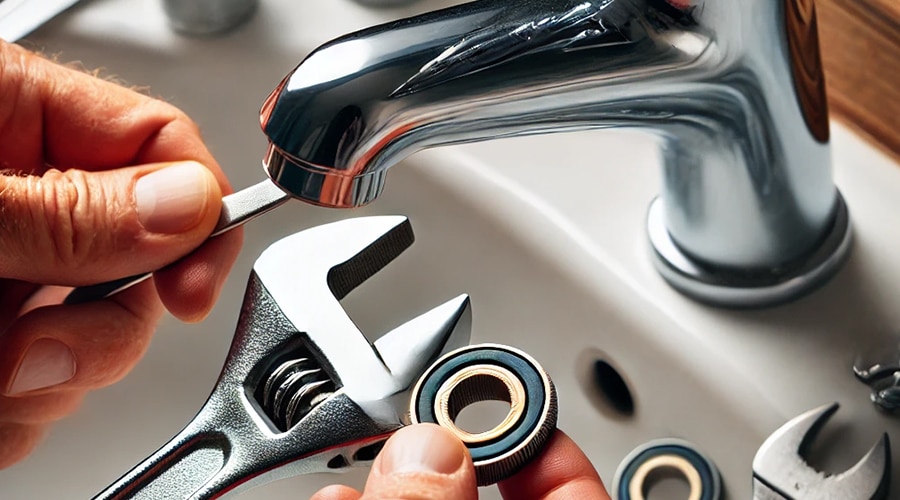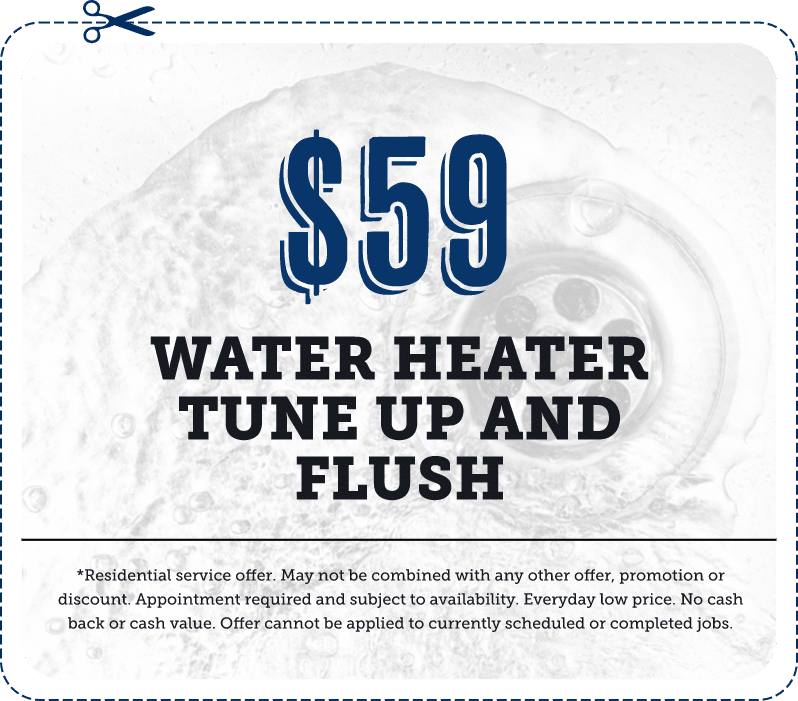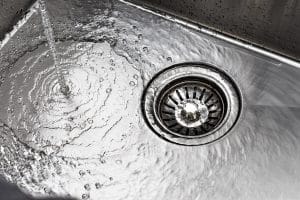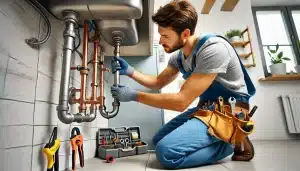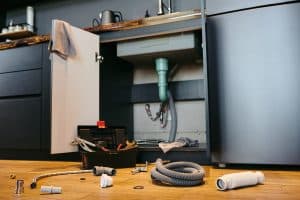Homeownership comes with its fair share of responsibilities, and plumbing repairs are often at the top of the list.
While larger issues might seem intimidating, many small plumbing fixes, like faucet washer replacement, are manageable even for the most novice DIYers.
Homeownership comes with its fair share of responsibilities, and plumbing repairs are often at the top of the list.
This guide will walk you through the essentials of replacing faucet washers and tackling other minor plumbing repairs that should never be overlooked.
What is a Faucet Washer and How Does It Work?
Faucet washers play a crucial role in your plumbing system. These small rubber or plastic discs help create a seal between the faucet handle and the valve seat. This seal prevents leaks by stopping water from escaping when the faucet is off. Over time, washers can wear out due to regular use, leading to persistent leaks that can drive you up the wall. If you notice a drip, squeaky handle, or stiff faucet movement, it might be time for a faucet washer replacement.
Signs Your Washer Needs Replacement
Recognizing the signs that your washer needs replacing can save you from bigger plumbing issues down the line. Common indicators include persistent dripping from the faucet, which is usually a telltale sign that the washer is worn out. You might also hear a squeaking noise when you turn the faucet handle, indicating friction caused by a degraded washer. Additionally, if you find it difficult to turn the faucet on or off, the washer may need replacement. Once you spot these signs, it’s best to take action before the issue escalates.
Ignoring these early signs can lead to more significant problems, including water damage to cabinets and flooring. Furthermore, a dripping faucet may seem like a minor annoyance, but it can waste a surprising amount of water over time. A faucet that drips just once every second can waste more than 3,000 gallons of water a year! Taking care of a faucet washer replacement promptly not only saves water but also helps you avoid escalating repair costs.
Faucet Washer Replacement
Replacing a faucet washer is easier than it might seem. Follow these steps for a smooth faucet washer replacement:
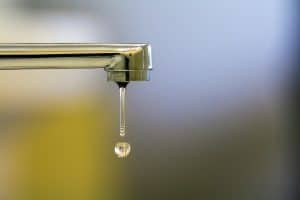 Start by turning off the water supply. Look for the shut-off valves under the sink and turn them clockwise to stop the water flow. If you can’t find the shut-off valves, you may need to turn off the main water supply to your home.
Start by turning off the water supply. Look for the shut-off valves under the sink and turn them clockwise to stop the water flow. If you can’t find the shut-off valves, you may need to turn off the main water supply to your home.
Next, unscrew the faucet handle using a screwdriver to remove the screw on the handle. If the handle is stuck, you might need to use a flathead screwdriver to gently pry it off. Be cautious not to damage the handle while doing this.
Once the handle is off, you’ll see the valve seat and washer. Carefully lift the old washer out and inspect it for wear. If it appears cracked or flattened, it’s time for a replacement. After that, place a new washer in the same spot, making sure it fits snugly. If you’re unsure of the size, take the old washer to your local hardware store to find an exact match.
Finally, put the handle back in place and screw it tight. Turn the water supply back on and check for leaks. If everything is in order, you’ve completed your faucet washer replacement!
Pro tip: When choosing a washer, opt for high-quality materials to reduce the need for frequent replacements. Investing in better washers can save you time and hassle in the long run.
Other Small Plumbing Repairs You Shouldn’t Ignore
While faucet washer replacement is vital, don’t overlook other small plumbing repairs. Fixing a running toilet, for example, can waste a significant amount of water. Common causes include worn-out flappers or issues with the fill valve. Addressing these can save you money on your water bill and prevent further damage to your toilet.
Another task is replacing shower head seals. Over time, shower head seals can wear down, leading to annoying drips. Replacing these seals can prevent water waste and improve your shower’s pressure. A good shower should provide a refreshing experience, not a constant reminder of leaks!
Clearing clogged drains is also essential. Minor clogs can often be cleared with a plunger or a mixture of baking soda and vinegar. However, don’t wait too long to address persistent clogs, as they can lead to bigger problems. A clogged drain can lead to backups that may damage your plumbing system.
Be aware of silent leaks in pipes. Leaks that go unnoticed can slowly drive up your water bills, so watch for signs like water stains on ceilings or walls, which can indicate a hidden leak. Over time, even a small leak can lead to major structural damage, so be proactive in identifying and addressing these issues.
When to Call a Professional Plumber in San Diego
While many small repairs can be handled at home, there are instances where it’s best to call in the professionals. For repairs that involve soldering, pipe replacements, or complex water heater maintenance, it’s wise to seek professional help. Hiring a professional plumber can save you time and prevent costly mistakes. They bring experience that can be invaluable when diagnosing plumbing issues.
Also, a licensed plumber understands local plumbing codes and water restrictions, which is essential for compliance and safety. Knowing these regulations can save you from potential fines and ensure that your plumbing work is up to standard.
Professional plumbers can also provide insights on the best materials and methods for your specific plumbing needs, ensuring a long-lasting repair. They often have access to specialized tools that can make repairs quicker and more effective, helping you get your home back in order with minimal hassle.
The Risks of Postponing Plumbing Repairs
 Delaying necessary repairs can lead to serious consequences. Unattended leaks can result in mold, mildew, and extensive wall damage, leading to costly repairs. Moreover, leaks and running toilets can significantly raise your monthly water expenses, hitting your wallet hard.
Delaying necessary repairs can lead to serious consequences. Unattended leaks can result in mold, mildew, and extensive wall damage, leading to costly repairs. Moreover, leaks and running toilets can significantly raise your monthly water expenses, hitting your wallet hard.
Ignoring small issues can escalate to major plumbing emergencies, such as burst pipes or significant backups. Acting early can save you from these nightmares. If you think a small leak isn’t a big deal, consider that one small leak can add up to over a hundred gallons of wasted water each month!
Remember, plumbing emergencies can occur at the most inconvenient times. Fixing a burst pipe or dealing with a flooded basement can quickly turn into a major hassle. Taking care of small repairs promptly not only saves you money but also gives you peace of mind.
Finding a Reliable Plumber in San Diego
When you do need to call in a professional, there are several tips for finding a reliable plumber. Always check for proper licensing and insurance, as well as positive customer reviews. A reputable plumber should have no problem providing this information. Local plumbers are also familiar with common issues in San Diego, such as hard water problems, and can provide tailored solutions.
Consider hiring a plumber who offers maintenance plans. Scheduled inspections can help prevent future issues and keep your plumbing in top shape. Regular check-ups can catch potential problems early and save you the stress of unexpected repairs.
Another tip is to ask friends and family for recommendations. Word of mouth can lead you to trustworthy professionals who have done good work in your community. Online resources, like local business directories and review sites, can also provide helpful insights into the best plumbers in your area.
Frequently Asked Questions
Below you find some commonly asked questions to consider:
1. How often should I replace my faucet washers?
It depends on usage, but it’s a good idea to check them annually, especially if you notice any signs of wear or leaking.
2. Can I use any type of washer for my faucet?
No, it’s essential to use washers that match your faucet’s specifications to ensure a proper seal and function.
3. How can I prevent clogged drains?
Regularly cleaning your drains, using drain strainers, and being mindful of what you put down the sink can help prevent clogs. Additionally, flushing your drains with hot water periodically can help dissolve buildup.
Call a Professional for Faucet Washer Replacement Today
Taking care of small plumbing repairs like replacing a faucet washer can save you time, money, and frustration. By addressing minor leaks, running toilets, clogged drains, and other issues early, you prevent them from turning into costly emergencies. While many of these tasks are easy DIY fixes, knowing when to call a professional plumber ensures you stay ahead of more complex problems. With a bit of maintenance and timely action, you’ll keep your home’s plumbing system running smoothly and avoid unnecessary stress down the line.
Call a professional for bathroom plumbing in San Diego to keep your plumbing in tip-top condition.

